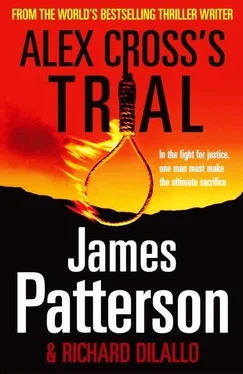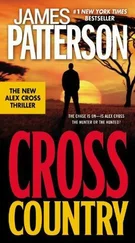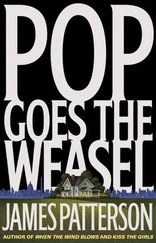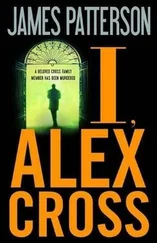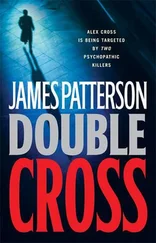“You’re sure it was Mr. Stephens you saw?”
“No doubt about it,” said Abraham. “And then that one there – Mr. Madden – he come into the parlor where I was, with another one of them Raiders. A man he called Harold.”
“And what did Mr. Madden do?”
“He says to this Harold, ‘You watch this old nigger real good. Keep your gun on his neck.’ Then he went back outside, Madden did.”
“And the one he called Harold – he stayed there with you?”
“Yes, he did.”
“Did he keep a gun on you?”
“Yes, sir. Up against my skull. And he grabbed Moody too. Not in a nice way.”
“And how did you respond to that, Mr. Cross?”
Abraham scratched his old head, closed his eyes for a moment. Then he spoke.
“Well, sir, to tell you the truth I didn’t have to respond.”
“And why is that?”
“Because a minute later, Ben Corbett come into the room, and my granddaughter Moody…”
He stopped.
“Please continue,” Jonah said.
“She pushed a kitchen knife into Harold’s back.”
“SO, LET ME SEE if I’ve got this straight, Mr. Cross.”
Maxwell Hayes Lewis stood up to begin his cross-examination of Abraham.
“You were lying in your living room, half asleep. Or maybe you were asleep and dreaming part of the time, you’re not really certain. You woke up… or you think you woke up… you looked out that window and saw a man you thought was Mr. Stephens pulling the trigger on a pistol.”
Jonah said, “Your Honor–”
“Overruled,” my father said.
“This is supposed to be a cross-examination,” Jonah said. “Could he get to a question sometime today?”
“I said overruled,” my father repeated.
“Oh, I’m asking him a question,” Lewis said. “I’m asking him if I’ve got his story straight. Mr. Cross, you said you saw this man shooting a pistol. But in fact you never saw him shoot anyone. You never saw anyone take a bullet from Mr. Stephens’s gun, did you? You can’t follow the path of a bullet with your eyes.”
“Your Honor–”
“Hush.” My father waved his hand as if Jonah were a fly that needed swatting. He turned to Abraham. “Answer the question. Are you sure who you saw?”
Abraham worked his jaw, as if chewing a wad of tobacco. Then he spoke.
“I know it was Mr. Stephens shooting, ’cause I saw him clear as day. I heard Jimmie when he fell and hit the roof. I knew that’s who it was ’cause I’d watched him climb up on the roof. And I saw him again, when he fell.”
Good for you, Abraham , I cheered silently. Give it back to him. Stick him with the truth.
“And that’s the way you remember it?” Lewis said.
“Yes, sir. But not only that. That’s how it was. ”
“How is your memory these days, Mr. Cross?”
“Sharp as a serpent’s tongue, sir,” he said.
That got a chuckle from the spectators.
Lewis smiled too. “How old are you now, Mr. Cross, sir?”
“Mama always said I come into Miss’ippi the same year Miss’ippi joined up with the United States.”
“And Mississippi became a state in 1817,” said Lewis. “So that would make you…”
“Eighty-nine,” Abraham said. “Same as Miss’ippi.”
Another laugh. If the jury was anything like the audience, some of them had to be enjoying Abraham’s company.
Lewis ambled over to his desk, picked up a piece of paper, and carried it to the bench. “Your Honor, if it please the court, I submit article number one as physical entry and evidence, a warrant from the chief of police to search the premises of one Abraham Cross in the Eudora Quarters.”
“Very well,” my father said. He took pleasure in sliding the document into the maw of his heavy iron stamp, bringing down the lever to imprint his seal and admit it into evidence.
He handed the warrant back to Lewis, who carried it to Abraham.
“Mr. Cross, would you please take a look at this document?”
Abraham slowly settled his spectacles onto the bridge of his nose and took the paper from Lewis.
“Mr. Cross, do you know how to read?”
Abraham straightened up and glared at him. “I’ve been reading the Good Book since I was five years old.”
“In that case, would you please be so kind as to read that for me – the sentences printed at the top, in the heavy ink.”
Abraham read: “‘This warrant renders unto the bearers the unchallenged right to examine all house, home, and household goods of the residence denoted below, by order of the Chief of Police in the township of Eudora, Mississippi.’”
Abraham looked up at the attorney towering over his wheelchair.
Lewis said, “Please read the name on the line marked ‘Residence.’”
“It’s my name. ‘Abraham Cross.’”
Lewis stuck his thumbs through his suspenders, a pose exactly like the photograph of Clarence Darrow I’d seen in the American Legal Companion.
“Now, Mr. Cross, when have you seen this document before?”
“Never in my life,” Abraham said.
“Are you sure about that?”
Yes, sir, he said. He was sure. Lewis asked him the question five different ways. Jonah tried to object and was gaveled into silence.
“Didn’t Mr. Stephens hand this document to you when he arrived at your house that night, Mr. Cross?”
Ah, here we go. Jonah jumped up. Objection overruled. He seemed to have reached a silent agreement with Judge Everett Corbett: he would be allowed to keep making objections as long as he understood he would be instantly overruled on every one.
“Mr. Cross, isn’t it true that you saw this document, you read it, and you threw it on the ground?”
“No, sir.”
“Didn’t you tell Mr. Stephens that if he wanted to search your house, he’d have to shoot you first?”
“No, sir. I did not.”
“Are you certain?”
“He didn’t bring no paper. They rode up and started shooting. If Mr. Stephens said he did that, he is a liar. And if you say he did it, sir, you would be a liar too.”
AFTER ABRAHAM FINISHED testifying and Moody took him home to put him back to bed, Jonah challenged the admissibility of Phineas Eversman’s search warrant.
My father looked mildly amused. “It’s a search warrant, Mr. Curtis. It looks like a thousand others that I’ve seen over the years,” he said.
Since his profane outburst in the direction of the applauding juror, I thought, my father had been unusually patient with Jonah. He must have realized how bad that eruption would look once all these “two-bit newspaper reporters” put it into print.
Jonah decided to tack in another direction. “Your Honor, I know you are well aware that under the rules of civil procedure, all documents entered as evidence must be shared with all counsel before commencement of trial,” he said. “The first time I saw this was a few minutes ago.”
My father peered down his nose at the spectacle of a Negro lawyer daring to cite civil procedure to him. “Now, Mr. Curtis, you being from up in Jackson and all, and educated up in the North, well, I’m sure you are accustomed to practicing before the big-city courts like they have up there, with your civil procedures and all that,” he said. I had seen him perform this act before: the simple country judge, working his way through the facts of the case with nothing but his good ol’ horse sense. “But down here in Eudora,” he went on, “we do things in a simple and logical fashion. Mr. Lewis hands me a document, I take a look at it. I ask myself if it looks authentic. In this case I thought it did, and I admitted it into evidence. I’m sorry you didn’t get to see it earlier – Mr. Lewis, you should’ve showed it to him – but I’m not going to throw it away or declare a mistrial on account of a thing like that. Mr. Curtis, is that all right with you? Yes? Let’s proceed.”
Читать дальше
